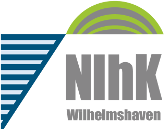Good scientific practice
"Good Scientific Practice" is a basic concept that defines ethical standards and ethical rules, which should be addressed by the scientific research. It is a "self-commitment" forming the basis for integrity, transparence and trustability in science. Herewith it constitutes the professional ethics of all scientists. The fundamental principle is that scientists are conducting their research to the best of their knowledge and belief and according to the latest level of knowledge. Against this background the German Research Community (DFG) decided the codex "Guidelines for Safeguarding Good Research Practice", the legally binding implementation of which at the applying institutions is mandatory for the grant of research projects by the DFG.
- Integrity: Scientists should be honest and candid aufrichtig in their research. This means not to falsify, manipulate and eliminate data. The critical discourse within the scientific community needs to be enabled.
- Transparency: Scientific results should be clear, understandable and preferably publicly presented. Not only results but also the methods applied should be laid open. By this, results become reproducible, verifiable and rateable.
- Academic honesty: All results need to be challenged consistently. Plagiarism and inappropriate adoption of ideas from other scientists are inacceptable. All sources used have to be cited in due form.
- Responsibility: The freedom of research requires a particular measure of personal responsibility. Scientists are responsible for the quality and accuracy of their research. They should correct mistakes and make efforts to sort out misunderstandings and wrong interpretations.
- Collegiality and cooperation: Scientists should treat each other and work together with respect and fairness. This applies particularly when carrying out management tasks. Abuse of power and exploitation of dependency relationships must be prevented.
Due to the scope and complexity of the procedures that must be initiated and carried out in the event of suspected scientific misconduct, the NIhK has decided to implement the guidelines in cooperation with the Jade University Wilhelmshaven/Oldenburg/Elsfleth. For this purpose, a written agreement was concluded between the two institutions, which refers to the regulations for ensuring good scientific practice at the Jade University.
